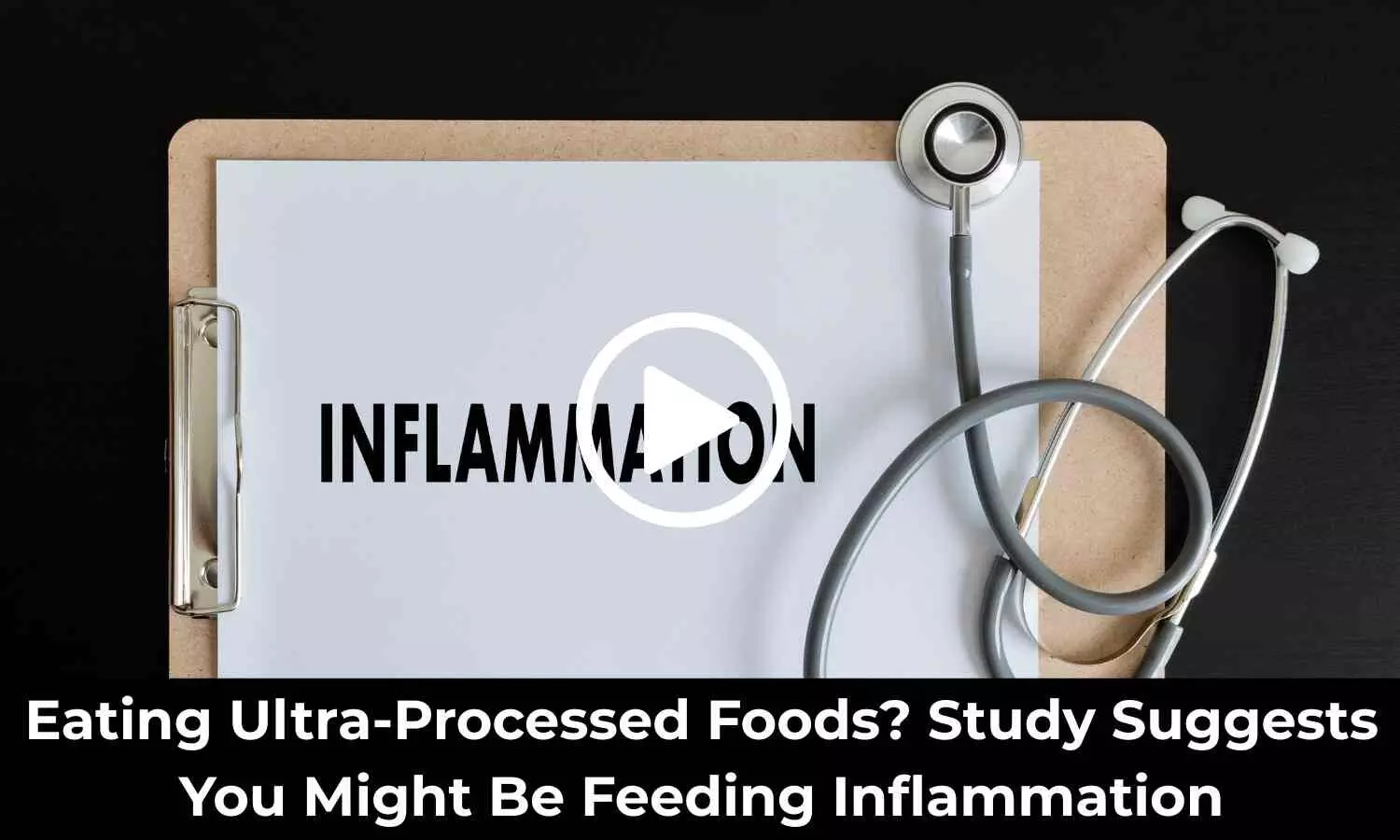Eating Ultra-Processed Foods? Study Suggests You Might Be Feeding Inflammation
- byDoctor News Daily Team
- 13 September, 2025
- 0 Comments
- 0 Mins

A growing body of evidence suggests that ultra-processed foods (UPFs) are doing more than just expanding waistlines-they could also be quietly fueling inflammation in the body. In a new study published inThe American Journal of Medicine,researchers found a strong association between high ultra-processed food consumption and elevated levels of high-sensitivity C-reactive protein (hs-CRP), a key marker of systemicinflammationand a well-established predictor of cardiovascular disease. Ultra-processed foods like packaged snacks, soft drinks, processed meats, and ready-to-eat meals are engineered to be hyper-palatable, shelf-stable, and cheap, often at the cost of nutritional quality. To investigate the physiological impact of such diets, researchers analyzed dietary and health data from 9,254 U.S. adults enrolled in the National Health and Nutrition Examination Survey (NHANES). Participants were grouped by their ultra-processed foods intake, ranging from under 20% to nearly 80% of total dailycalories. After adjusting for other health factors like age, weight, smoking status, and activity levels, the study found that individuals consuming the most ultra-processed foods (60–79% of daily calories) had an 11% higher likelihood of elevated hs-CRP levels than those in the lowest intake group. Even moderate ultra-processed foods consumption (40–59%) led to a 14% increase in risk. “These findings, based on a large and nationally representative sample of U.S. adults, clearly show that people who consume the highest amounts of ultra-processed foods have significantly higher levels of high-sensitivity C-reactive protein, a key marker of inflammation,” said Dr. Allison H. Ferris, senior author and chair of the FAU Department of Medicine. The study also highlighted demographic differences: adults aged 50–59 had a 26% higher risk of elevated inflammation compared to those aged 18–29, and obesity increased the risk by 80%. Interestingly, physical inactivity alone did not significantly impact high-sensitivity C-reactive protein levels. As the health burden of ultra-processed foods continues to mount, the study urges clinicians and policymakers to treat food quality as a central pillar of disease prevention and public health. Reference:Ultra-Processed Foods and Increased High Sensitivity C-reactive Protein, Sajan, Kevin et al., The American Journal of Medicine, Volume 0, Issue 0
Disclaimer: This website is designed for healthcare professionals and serves solely for informational purposes.
The content provided should not be interpreted as medical advice, diagnosis, treatment recommendations, prescriptions, or endorsements of specific medical practices. It is not a replacement for professional medical consultation or the expertise of a licensed healthcare provider.
Given the ever-evolving nature of medical science, we strive to keep our information accurate and up to date. However, we do not guarantee the completeness or accuracy of the content.
If you come across any inconsistencies, please reach out to us at
admin@doctornewsdaily.com.
We do not support or endorse medical opinions, treatments, or recommendations that contradict the advice of qualified healthcare professionals.
By using this website, you agree to our
Terms of Use,
Privacy Policy, and
Advertisement Policy.
For further details, please review our
Full Disclaimer.
Recent News
Gum disease could silently cause serious brain dam...
- 03 November, 2025
Can Early-Day Fasting Significantly Boost Metaboli...
- 03 November, 2025
Delhi HC bars doctor from running medical centre d...
- 03 November, 2025
Phase III data for Gazyva/Gazyvaro show significan...
- 03 November, 2025
Daily Newsletter
Get all the top stories from Blogs to keep track.


0 Comments
Post a comment
No comments yet. Be the first to comment!